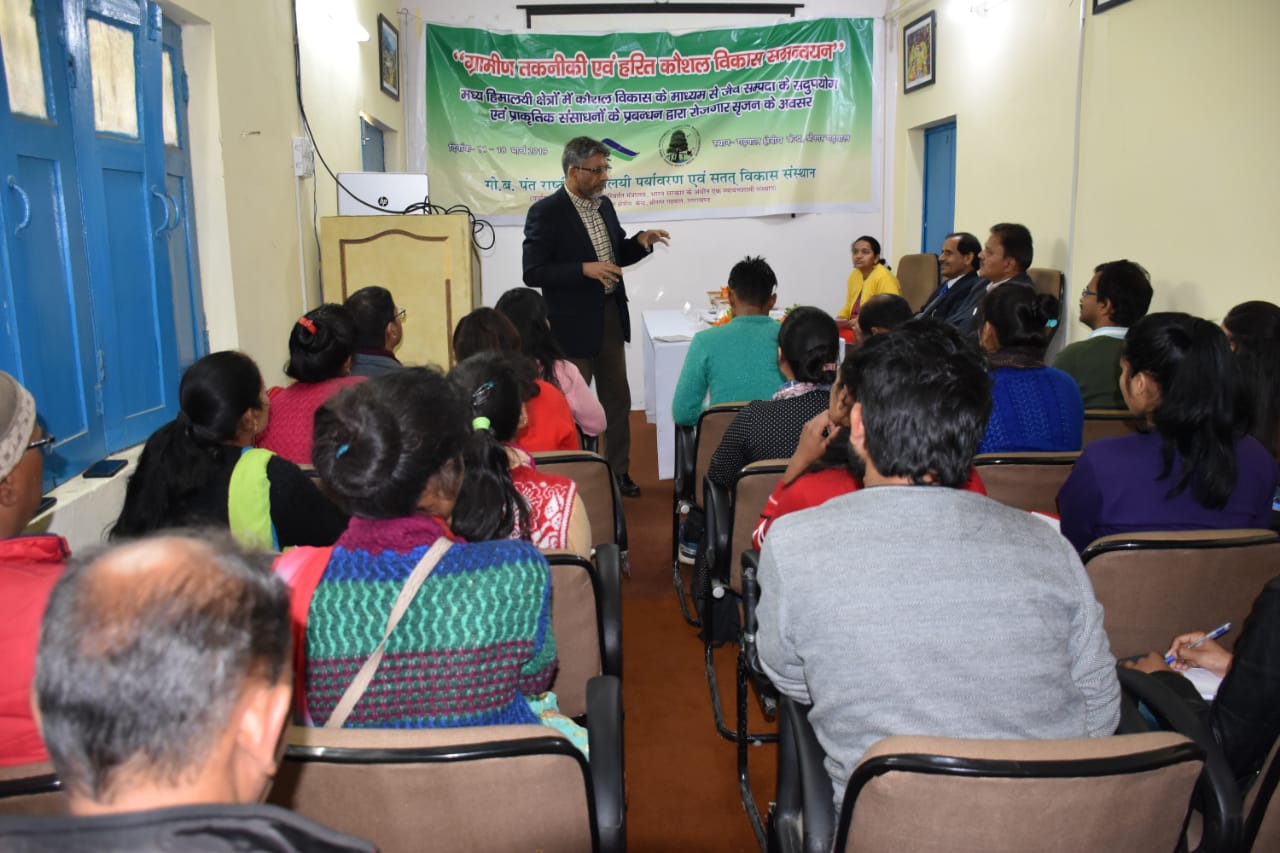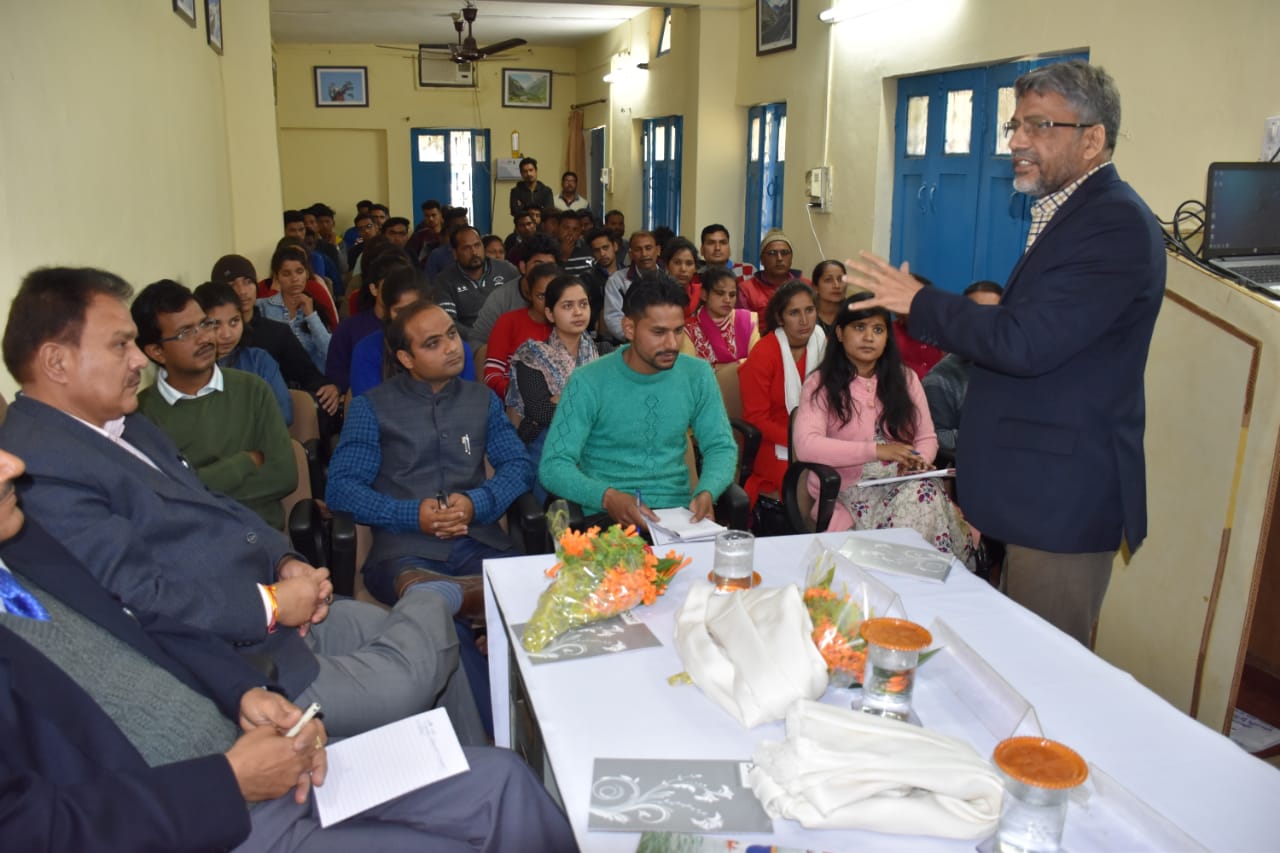RCE Srinagar Runs Sessions for Science Motivation Programme and Green Skill Development Workshop
 RCE Srinagar was recently invited to participate in a Science Motivation Programme for School Teachers organised by the School of Education, Hemvati Nanadan Bahuguna Garhwal (Central) University (HNBGU), from 6-11 March, 2019.
RCE Srinagar was recently invited to participate in a Science Motivation Programme for School Teachers organised by the School of Education, Hemvati Nanadan Bahuguna Garhwal (Central) University (HNBGU), from 6-11 March, 2019.
Dr. Abdhesh Kumar Gangwar, Coordinator and Focal Point, RCE Srinagar, ran two sessions: Action Research in Science, and Significance and Report Writing, orienting the participants on the Sustainable Development Goals (SDGs), Aichi Biodiversity Targets, and the Paris Climate Agreement. Emphasis was placed on strengthening primary and secondary education to improve higher education and research in the country.
In another programme titled ‘Rural Technology Connect for Green Skill Development, Harnessing Bioresource Potential for Livelihood Enhancement and Natural Resource Management in the Central Himalaya’, held by the Govind Ballabh Pant National Institute of Himalayan Environment and Sustainable Development (GBPNIHESD), from 11-18 March, 2019, Dr. Gangwar called upon the youth to take up the District, State and Union level programmes to the Gram Panchayats (GPs). Due to a lack of awareness, these programmes are not known to the GPs, and as a result, the benefits do not reach the beneficiaries. Providing youth with access to information, internet connectivity, and other required technology and skills can help to bridge these current gaps.
Teachers were educated on how to make learning joyful, relevant and locale-specific. Activity-based teaching was demonstrated, as well as how activities can be designed using low-cost material. The importance of primary and secondary schools working with local Gram Panchayats (Panchayati Raj Institutions) linking School Development Plans with Gram Panchayat Development Plans was explained. Teachers can act as turn key agents in taking Central and State Government programmes to the Gram Panchayat level and translating them into action.
 Climate change adaptation and disaster risk reduction was also discussed. It is imperative for students and teachers to prepare disaster management plans of their school, and also help the Gram Panchayat in preparing the disaster management plan of their village and school.
Climate change adaptation and disaster risk reduction was also discussed. It is imperative for students and teachers to prepare disaster management plans of their school, and also help the Gram Panchayat in preparing the disaster management plan of their village and school.
By doing so, the safety and wellbeing of the students both in school and at home can be ensured if they can be equipped with the required skills to be able to respond during any disaster – something that RCE Srinagar has been striving to achieve across the Indian Himalayan Region.
The importance of considering environmental sustainability in any new interventions was emphasised, with RCE Srinagar explaining several green technologies which have been implemented following disasters in order to aid in restoring the livelihoods of affected people such as bee-keeping, mushroom culture, and poly greenhouses.
(Photo credits: RCE Srinagar)


